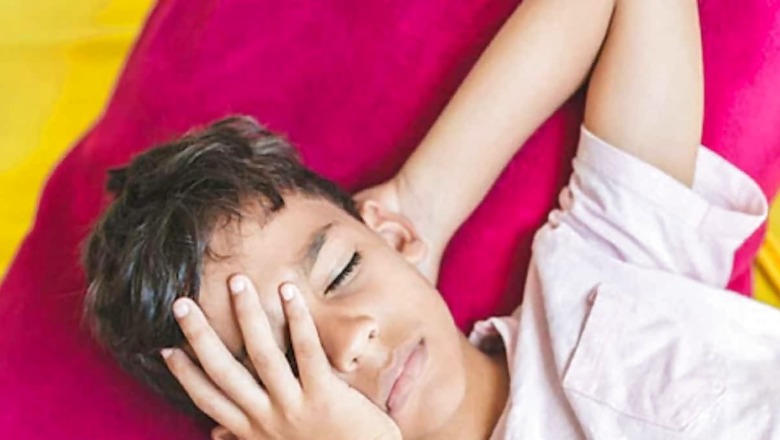
views
Parents often worry about their child’s ability to focus in today’s fast-paced environment since there are so many distractions and demands on children’s attention. The inability to focus during daily tasks, such as finishing schoolwork, attending class or staying on target, can be upsetting for both parents and children. But what if the cause is something as basic as sleep? Because irregular or insufficient sleep can have a substantial impact on a child’s focus, behaviour and general well-being. Sleep patterns are important for cognitive performance. Let us find how sleep pattern of your child can affect their attention.
How Can Sleep Schedule Affect Your Child?
Lack of focus is one of the initial indicators of sleep deprivation. Your kid may show signs of being easily distracted, struggling to focus, or just nodding off during class or chats. It seems as though their mental energy is affected, making it challenging for them to meet everyday tasks. This lack of concentration can cause them to struggle to stay up with their tasks overall, miss instructions, and forget homework. Not only does sleep deprivation cause children to feel exhausted, but it can also hinder their academic performance. Research indicates that kids who do not get enough sleep frequently, do poorly academically, struggle to solve problems and find it hard to handle assignments that call for critical thought.
Signs Your Child Is Facing Lack Of Sleep
- Appear grumpy, agitated, or overly sentimental frequently.
- Finds it difficult to focus at home or in school
- Drift off to sleep in the car or anywhere.
- Seem to have trouble keeping up with talks or frequently “zones out”
- Once you have woken them up for the day, they struggle to go back to sleep or wake up.
- Frequently experience sleepiness far earlier than their usual bedtime.
How Much Adequate Sleep Does Your Child Need?
- Infants (4 to 12 months)- 12 to 16 hours (including naps)
- Toddlers (1 to 2 years)- 11 to 14 hours (including naps)
- Children (3 to 5 years)-10 to 13 hours (including naps)
- Children (6 to 12 years)-9 to 12 hours
- Teens (13 to 18 years)-8 to 12 hours
Tips To Improve Sleep Patterns for Better Focus
Limit Screen Time
Try to avoid using screens for at least an hour before bed to encourage healthier sleep. Encourage calm pursuits like reading or painting instead of screen time to help your youngster unwind without the stimulating impacts of technology.
Keep The Sleep Schedule Consistent
Try to keep your sleep schedule consistent every day, even on the weekends. This facilitates your child’s natural sleep and wake cycles by regulating their internal clock.
Change Your Bedroom Environment
The quality of your child’s sleep is greatly influenced by the surroundings in which they sleep. To establish the perfect sleeping environment, try to keep their bedroom cold, dark and quiet.
Right Amount of Food
Ensure that your kid eats a filling dinner at a decent hour. Your child may become more aware or uncomfortable if they are hungry or overly full before bed. Your child may find it more difficult to fall asleep as a result. A nutritious meal helps set your child’s body clock for the optimal time in the morning.
Maintain a Bedtime Routine
Establishing a regular bedtime routine is one of the best strategies to help your child relax and get ready for sleep. When your child is ready to sleep, simple activities like reading a book, having a warm bath, or listening to relaxing music will help them.




















Comments
0 comment